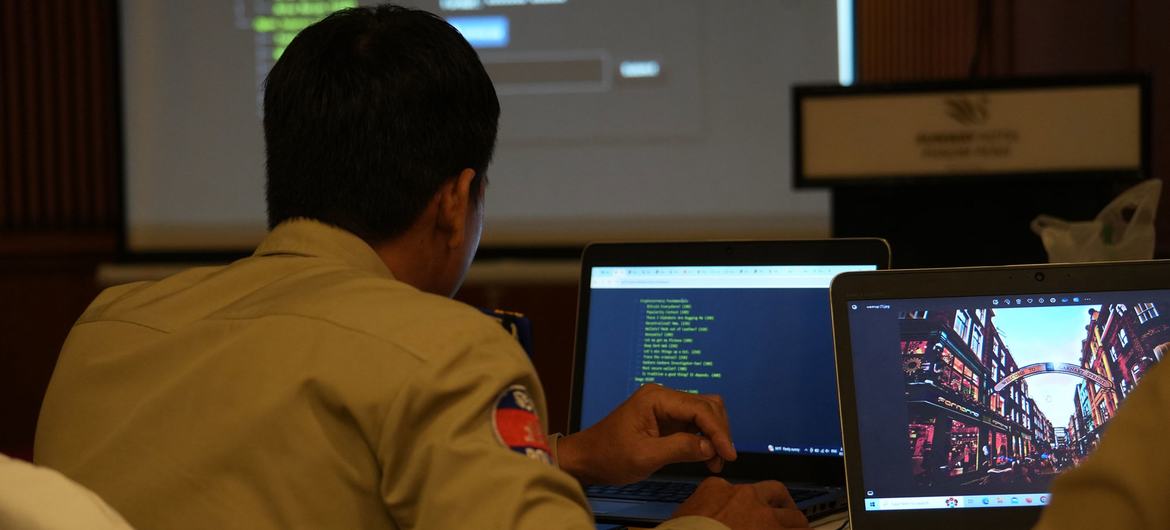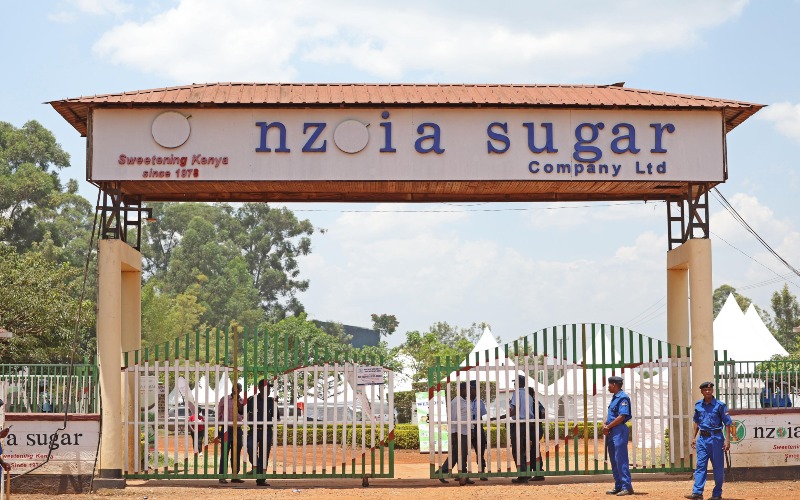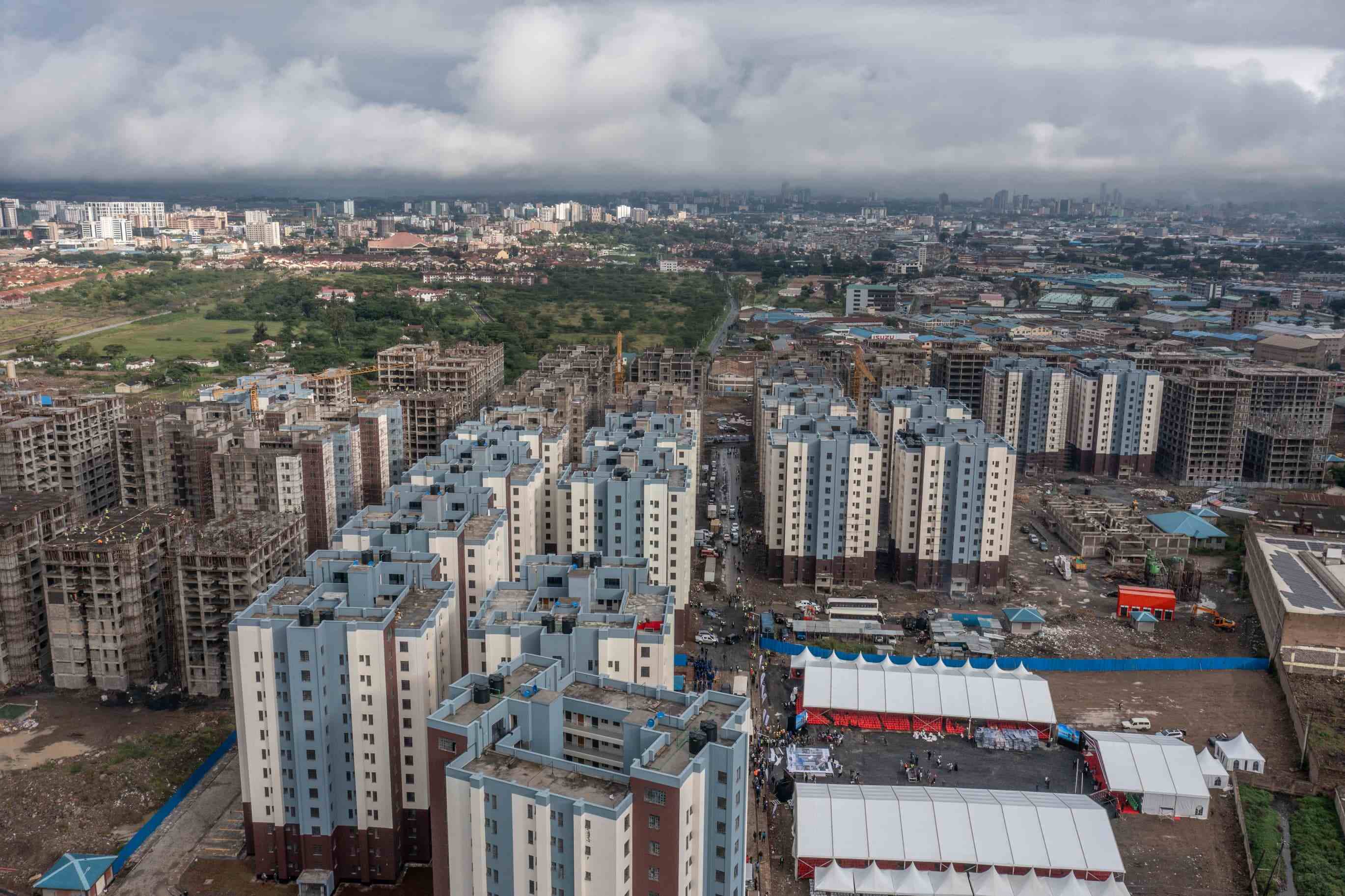Rent default crisis spiral in Nairobi as Sakaja faces backlash over eviction threats

The plan, which tenants claim was rolled out without their involvement, has triggered resistance from residents who are also facing threats of eviction due to longstanding rent arrears.
Tensions are mounting between the Nairobi County Government and tenants of public estates, as a planned housing redevelopment project sparks a fierce dispute over unpaid rent, land ownership, and allegations of inadequate public consultation.
At the centre of the clash is the county’s intention to redevelop 13 estates — including Woodley, Lumumba, Maringo, Ofafa Jericho, and New Pumwani — as part of a citywide regeneration initiative.
More To Read
- Bunge La Mwananchi, activists move to court to block Sakaja-National Government deal
- City Hall to register roadside vendors in drive to widen tax base
- Githurai MCA asks EACC to probe Sh17 Million roadworks irregularities
- Nairobi residents express fury over unending drainage woes
- Nairobi hospitals fully absorb funds, boosting services in new health reforms
- Nairobi eases debt burden by cutting pending bills by Sh35 billion
The plan, which tenants claim was rolled out without their involvement, has triggered resistance from residents who are also facing threats of eviction due to longstanding rent arrears.
Appearing before the Senate Roads, Transport and Housing Committee on Monday, Governor Johnson Sakaja revealed that some tenants have lived in county houses for over a decade without paying rent.
The most extreme case involves a tenant in Woodley Estate who owes Sh1.8 million in unpaid rent accrued over 158 months, despite being charged Sh17,600 monthly. Another owes Sh1.74 million after failing to pay Sh11,000 per month for more than eight years.
In total, 118 tenants in Woodley Estate alone have defaulted on rent, owing the county government Sh39.63 million. Sakaja questioned how the administration could be expected to function if tenants did not meet their rental obligations.
“For everyone in our county houses who is not paying rent, you will be evicted. These houses don’t belong to me — they belong to the people of Nairobi,” Sakaja stated.
He added that many tenants pay rates far below market value for properties located in prime areas such as Woodley, where some homes sit on half-acre plots with generous space.
“If you fail to pay Sh10,000 or Sh17,000 for such a property in an area where the minimum market rent is Sh150,000, what are we expected to do with you?” the Governor asked.
However, the threat of eviction has provoked anger among tenant associations, who accuse the county of failing to follow legal procedures and of ignoring key concerns such as land ownership and public participation.
The associations also claim that some tenants believed they owned the properties and therefore did not pay rent, an issue further complicated by a court ruling that nullified any title deeds issued in Woodley.
Chairperson of the Woodley Residents Welfare Society, Sam Gachagua, told the Senate committee that not all tenants had been compensated or adequately engaged.
“Public participation has not been conducted properly in Woodley Estate. Some members have been compensated while others have not. We need to have a meeting with the Governor and his officers regarding the impending evictions,” he said.
Gachagua also explained that many residents acted on a rent waiver issued during former Governor Mike Sonko’s administration, which directed them to begin paying rent from 2019.
“There was a gazette notice under Governor Mike Sonko’s tenure that granted residents a waiver and directed that rent payments resume in 2019. No one has refused to pay rent,” he added.
In New Pumwani Estate, residents claim they were excluded from the redevelopment despite a two-year public participation exercise that initially exempted them.
“What was the purpose of having a two-year public participation process for the New Pumwani regeneration project? Attempting to redevelop California and New Pumwani contrary to the report is in bad faith. We are not comfortable with this programme,” said Jackson Muturi Kimani, chair of the estate’s residents’ association.
Agesa Omega, representing Lumumba Estate, accused the county of seeking community input only after decisions had already been made.
“The County Government published an EOI in January 2021, but only called us for a meeting in July 2021. We felt that the meeting was just to rubber-stamp what had already been decided. We did not accept the regeneration project,” he said.
He added that residents in Lumumba had long been promised ownership, not tenancy. “We are victims of historical land injustices. We were renting to own the houses. The issue of land ownership must be clarified before discussions on new units can proceed,” Omega stated.
In Maringo Estate, the residents’ association secretary, Onyango Ogutu, criticised the county for allegedly ignoring their letters and failing to adhere to the constitutional requirement for public participation.
“The project being implemented in Maringo was not approved by the County Assembly. That alone is a breach of the law. Public participation has also not been carried out. We have written to the Governor, but he has not had the courtesy to respond,” Ogutu said.
Governor Sakaja has dismissed claims of non-involvement, insisting his administration has made efforts to engage residents. “What we are offering is a partnership. The goodwill extended by the County Government should be reciprocated. We have invited them to the meeting,” he said.
The County boss also stressed the importance of tenants understanding their position.
“When you are a tenant, the landlord can undertake any action on that property, provided it is done procedurally and within the law. I want to dispel the notion that there was no public participation,” Sakaja said.
Nevertheless, mistrust between residents and the county remains high. Residents insist they are not opposed to development but demand clarity on land ownership, legal safeguards, and genuine engagement before any evictions or construction can proceed.
Top Stories Today














































